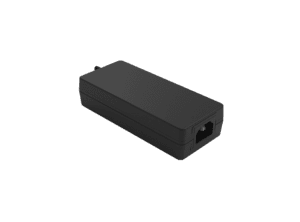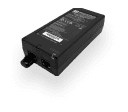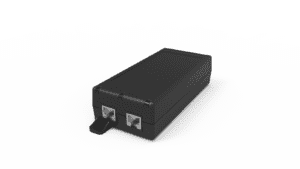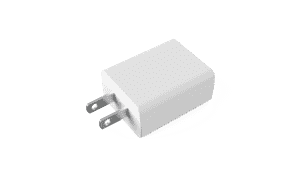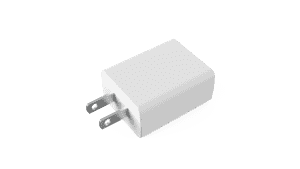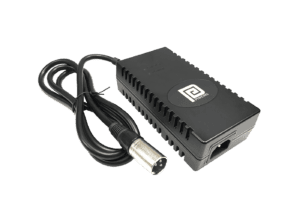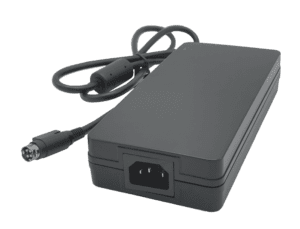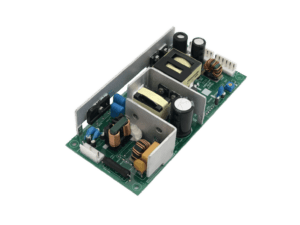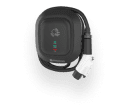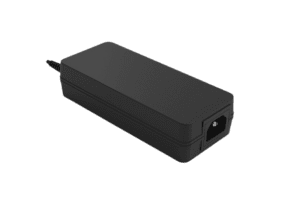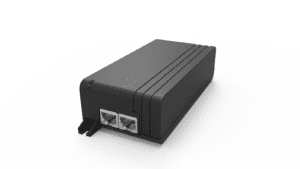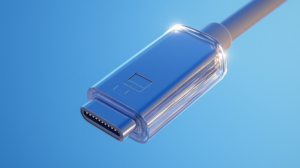BLOG
USB Adapter Manufacturers: A Guide for Choosing the Best One
QUICK LINKS
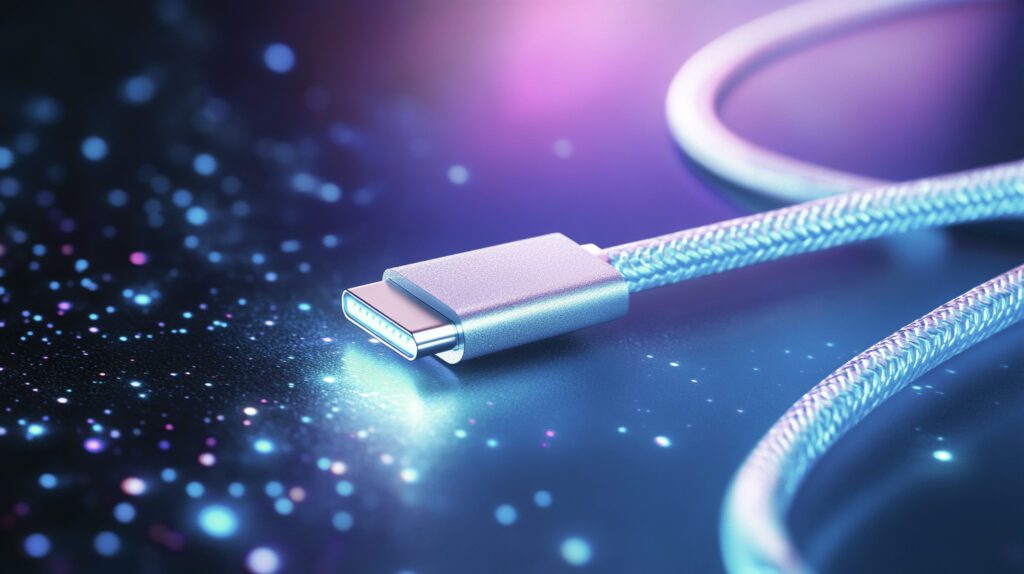
For decades, USB adapters have been evolving in tandem with our cherished phones, tablets, and laptops. USB adapter manufacturers have continuously re-shaped this external power supply, crafting them to be smaller, smarter, and faster. Yet, this amazing innovation is often tucked away and unnoticed. However, the truth is, without these little marvels, we would find ourselves stranded in a technological dark age.
The purpose of this article is to help you grasp the current state of the modern USB adapter, and, if you’re an OEM in search of a reliable power supply partner, you may find this as a valuable resource for screening potential suppliers.
Types of USB Technology
The Universal Serial Bus (USB) has been around since the mid-90’s. Over time, USB technology evolved significantly, introducing iterations and improvements to cater to evolving user and device requirements:
USB-A
In USB technology’s early days, USB-A emerged as one of the first connectors, introduced and standardized in the mid-1990s. USB-A connectors remain popular for linking peripherals such as keyboards, mice, printers, and storage devices to computers and devices.
USB-A Power Outputs:
It varies depending on the version: USB 1.0 & 2.0 provide up to 2.5 watts, USB 3.0 & 3.1 can go up to 4.5 watts, and dedicated charging ports with USB BC 1.2 reach up to 7.5 watts.
USB-B
Like USB-A, Micro-B (or Mini USB) resides as a legacy bus in older devices such as cameras and MP3 players.
USB-B Power Outputs:
For USB-B, the typical power output is 2.5 watts (USB 2.0), but SuperSpeed versions (USB 3.0+) can support higher wattage (up to 100 watts) with USB PD, though less frequently than USB-C.
USB-C
USB-C stands as the undisputed champion of USB connectivity. Apple has even abandoned its proprietary ‘lightning connector’ and has embraced USB-C in their new iPhone 15 series. Other Big Tech companies are also adopting USB-C as it’s clearly the best choice, thanks to its faster data transfer and charging speeds, versatility, and convenient design.
USB-C Power Outputs:
USB-C’s power delivery ranges from a basic 2.5 watts to 240 watts, depending on whether it uses standard USB-C or leverages USB PD versions. Here’s the break down:
- Standard USB-C (no PD): Up to 2.5 watts (at 5V)
- USB PD 2.0 and 3.0: Up to 100 watts (5V – 20V)
- USB PD 3.1: Up to 240 watts (28V – 48V)
Types of USB Adapters
USB adapters come in a plethora of options, each tailored for specific needs. We break down the types of USB adapters are out in the market to give you an idea on what is currently available from USB adapter manufacturers:
Fixed Plug (Wall Mount) USB Adapters
A fixed-plug adapter, commonly known as a “wall adapter” is essentially an external power supply block that plugs into a wall outlet to convert alternating current (AC) to direct current (DC), providing power to your favorite electronic devices.
The business-end usually sports a built-in port area (a female ‘input’ or ‘inlet’) or comes with an attached cord with a specific plug type (such as USB-C, a barrel connector, etc).
Detachable Plug (Desktop) USB Adapters
Non-fixed plugs are essentially the same, except these USB adapters come with a detachable or interchangeable AC power cord option. They provide more flexibility to accommodate different type of power outlets found in various countries or regions.
They come in various shapes and sizes, but the most common form we’re all familiar with is the rectangular power brick, which is typically associated with laptops and PC monitors. These adapters typically house a built-in port (or input) that’s compatible with IEC 60320 cords.
IEC 60320 is a set of three types of cords that have their own standards developed by the International Electrotechnical Commission (IEC). These standards define the physical dimensions, electrical properties, and safety requirements for adapters and electrical equipment.
The IEC 60320 standards ensure interoperability and safety by specifying characteristics such as current rating, voltage rating, temperature rating, and ingress protection. This helps manufacturers design products that can be safely connected to power sources worldwide and ensures that users can easily find compatible connectors for their devices.
Here are the three types of the most common IEC 60320 standards:
- C6 Inlet: Also known as an “IEC 60320 C6” or “cloverleaf” connector.
- C8 Inlet: Also known as an “IEC 60320 C8” connector or “figure-eight” connector.
- C14 Inlet: Also known as an “IEC 60320 C14” connector.
Interchangeable Plug (Country-Specific) USB Adapters
Essentially these are like the non-fixed plug adapters, except they do not require IEC 60320 standard cords, and typically come with their own AC plug ‘face-plates’ that allow users to swap out different plugs easily. Perfect for those that are traveling and need a USB adapter to work in all regions.
Here are a few examples of Interchangeable USB adapters Phihong carries:
- USB-C Port – 18W Travel Adapter Series
- USB-A Port – 10W Travel Adapter Series
- Mini-USB Plug – 5W Travel Adapter Series
Choosing the Right USB Adapter Manufacturer
Choosing USB adapter manufacturers is almost like an investment. The wrong choice could endanger expensive electronics or, as an OEM, could harm your reputation. So, let’s discuss some key factors to consider before investing:
Reputation
Consider the reputation of the USB adapter manufacturer. What are industry leaders and customers saying about the manufacturer’s products? Some power supply companies prioritize short-term performance at the expense of long-term reliability. Consider third-party websites like the Better Business Bureau (BBB), or website reviews from previous customers.
Safety Certifications
Acquiring the correct worldwide safety certification for any power supply, including USB adapters has become an expensive and complex undertaking. Selecting the wrong USB adapter manufacturer can have a huge cost impact to your program and significantly delay the product launch schedule. Reliable USB adapter manufacturers will only use reputable testing labs, such Underwriters Laboratory (UL) and will always provide detailed product safety reports so that customers can validate the integrity of the product design.
Efficiency Certifications
As the world goes green, energy standards are continuously changing, with many regions now adopting unique efficiency specifications, which regulate the use of USB adapters within their countries. When selecting a USB adapter manufacturer, make sure you look for USB adapters that meet the latest and greatest energy efficiency standards such as DOE VII and COC…. Failure to do so can result in huge fines and product injunctions.
Environmental Certifications
Among other certifications a manufacturer would highlight is ISO 14001. An ISO 14001 certification signifies that the company is proactive in its approach to environmental stewardship, encompassing measures to minimize resource consumption, prevent pollution, and promote sustainability.
Manufacturing Quality Standards & Certifications
Look for USB adapter manufacturers that highlight specific state-of-the-art process lines and technologies that ensure high-quality standards through automation, precision machinery and advanced quality control measures.
Reputable adapter manufacturers would highlight an ISO 9001 and 9002 certifications. ISO 9001 and 9002 are international standards that specify requirements for a quality management system (QMS) within an organization. Companies would use these certifications to demonstrate the ability to provide products that meet customer and regulatory requirements from design to delivery.
Build & Material Quality
Look for manufacturing companies that use fire-resistant and energy-efficient materials. Gallium Nitride (GaN) for example, which is a leading material choice renowned for its superior safety standards and efficient power conversion capabilities. GaN not only facilitates rapid charging but also minimizes heat generation, ensuring safe and reliable operation without risk of overheating.
Testing Procedures
See if the USB adapter manufacturer mentions rigorous testing procedures for their adapters to ensure consistent performance. If you’re looking for a USB-C adapter manufacturer, there isn’t a specific “USB-C certification” testing procedure. However, there are testing procedures involved with ensuring proper functionality and safety called USB-IF compliance testing.
Customer Service
It’s always a good sign if a USB adapter manufacturer has a way for customers to call if they have any inquiries. A great power supply manufacturer would give the (potential) client the opportunity to talk to a live engineer, a person that has expert knowledge of the inner workings of the device they’re inquiring about.
Why OEMs Should Consider Phihong the Best USB Adapter Manufacturer
Now that you have a handle on what to look for before considering a manufacturer for your next custom USB adapter venture, there’s something we must emphasize: not all USB adapter manufacturers are created equal.
Some USB adapter manufacturers are only driven by profit, quickly churning out low-quality goods while disregarding quality standards. However, there are manufacturers like Phihong who operate a little differently: Phihongs primary focus isn’t just meeting your standards; it’s surpassing them.
We’re committed to excellence in every aspect. With Phihong, you’re not just investing in a high-quality product; you’re investing in the reputation of your business and in peace of mind that you are offering your customer a USB adapter that mirrors the quality of the devices you’re selling them.
Safety
Phihong meticulously engineers its products with conservative deratings to ensure the longevity of devices without compromising on the optimal blend of affordability, performance, and reliability. Every USB Adapter that Phihong manufacturers is designed to the latest worldwide regulatory requirements including Safety, Energy Efficiency & EMC. All Phihong products are certified at full power for operation in ambient temperatures up to 40°C.
Efficiency
Phihong is dedicated to unwavering commitment to energy efficiency compliance across all products, achieving Efficiency Level 6, the highest attainable efficiency standard. We adhere to safety and energy certifications required for the intended usage locations of our products. Additionally, we align with governmental guidelines such as the U.S. Department of Energy DoE Level VI and are proactive to comply with any future certification standards.
Environmental Leadership
Phihong maintains its role as an environmental leader in the power supply industry. With certified ISO 14001 facilities, Phihong takes proactive steps toward environmental stewardship by minimizing consumption, preventing pollution, and championing sustainability initiatives.
Quality Manufacturing
Quality manufacturing is what ultimately keeps OEMs coming back to Phihong for their power supply needs. Our facilities are ISO 9001 and 9002 certified and are equipped with cutting-edge surface mount and through-hole process lines with a defect rate of less than 50 parts per million (ppm). Overall, Phihong’s advanced manufacturing capabilities, efficient production processes, and commitment to maintaining high-quality standards proves as a testament to Phihong’s ability to produce reliable electronic components to our clients.
Quality Customer Service
Phihong is committed to providing exceptional support to our customers. That’s why we offer live, state-side customer support to address any questions or concerns you may have. When you call our dedicated line at (510) 445-0100, you’ll have the opportunity to speak directly with one of our knowledgeable product engineers. Our support team is available Monday through Friday, from 9:30am to 6:30pm, whether you have inquiries about our products, need technical guidance, or require assistance with troubleshooting.
CLIENT'S QUOTE
Phihong's Power-Over-Ethernet solutions have transformed our network, boosting efficiency and reducing costs. Their seamless integration has simplified both installation and maintenance.
Explore More with Phihong USA
As we conclude our exploration of power supplies, it’s evident how these innovations are evolving like never before. Phihong USA stands at the forefront of this technological advancement, offering a diverse range of power solutions designed to meet the evolving needs of modern industries.
Phihong USA’s extensive product lineup includes:
- Power over Ethernet (PoE) Solutions: Delivering reliable power and data transmission over a single cable, ideal for simplifying network installations and reducing costs.
- AC/DC Adapters and Power Supplies: From compact adapters to industrial-grade power supplies, Phihong provides solutions that ensure efficiency and reliability in various applications.
- Battery Chargers: Customizable chargers for lithium-ion and lead-acid batteries, supporting a wide range of power requirements for mobility and industrial applications.
- Medical Power Supplies: Specialized power solutions designed to meet the stringent requirements of the healthcare industry, ensuring safety and reliability.
Phihong USA is committed to innovation and excellence, continually developing products that meet the highest standards of performance and reliability. Their global reach and dedication to customer support make them a trusted partner in powering the future.
Here are some useful links to explore Phihong USA’s offerings further and bring in new potential clients:
Visit Phihong USA to discover how their advanced power solutions can support your business needs. Whether you’re looking to upgrade your network, or find reliable power supplies, Phihong USA has you covered.
By choosing Phihong USA, you’re partnering with a leader in power technology, ensuring your operations run smoothly and efficiently with top-tier power solutions.

Contact Our Team Today!
Our dedicated sales team and international partners are prepared to support you with your latest projects and initiatives globally.
FAQs
How does the design and form factor of USB adapters influence their usability and compatibility?
The design and form factor of USB adapters are crucial in determining their usability and compatibility across various devices and environments. A compact and lightweight design is ideal for consumer electronics, offering portability and ease of use. Such designs ensure the adapter can be conveniently carried and used with different devices. Conversely, industrial applications often require ruggedized adapters that can endure harsh conditions like extreme temperatures, dust, and mechanical stress. These adapters are built with durable materials and protective features to ensure longevity and reliable performance. The form factor also affects compatibility; adapters must match the specific connector types and profiles of the devices they are intended to support. Thus, the design and form factor must align with the specific needs of their intended applications to function effectively.
What are the considerations for selecting USB adapters for specific applications, such as industrial or medical use?
Selecting USB adapters for specialized applications, such as industrial or medical use, involves evaluating several key factors to ensure optimal performance and compliance with industry standards. In industrial settings, adapters need to be durable, capable of withstanding temperature extremes, humidity, and vibrations, and often must meet safety certifications for hazardous environments. For medical applications, adapters must adhere to strict safety and hygiene standards, including electrical safety and electromagnetic interference regulations. They should also be designed to be easy to clean and disinfect, and compatible with medical devices to ensure accurate data transmission. Thus, selecting the right adapter involves assessing its robustness, safety features, and adherence to specific regulations.
How do regulatory changes impact the design and manufacturing of USB adapters?
Regulatory changes significantly affect the design and manufacturing of USB adapters by imposing new standards for safety, electromagnetic compatibility, and energy efficiency. Manufacturers must adapt their designs to meet updated regulations, which may require additional safety features, improved shielding, and more energy-efficient components. For example, stricter safety guidelines might necessitate enhanced protective measures and rigorous testing, while updates in electromagnetic compatibility standards could demand adjustments in the adapter’s design to reduce interference. Manufacturers need to stay current with regulatory developments and often engage in ongoing testing and certification to ensure compliance. This dynamic regulatory environment drives continuous innovation and adaptation in USB adapter design and manufacturing.

